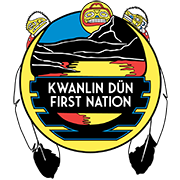New funding partnership adding wind-energy to the grid in the Yukon
Whitehorse, Yukon, April 28, 2022—The shift to clean, sustainable energy production is important to building healthy communities. Northern communities are especially susceptible to the impacts of climate change and investing in renewable energy infrastructure projects is one of the key ways we can join economic development and climate action.
Today, Dr. Brendan Hanley, Member of Parliament for Yukon, on behalf of the Honourable Dominic LeBlanc, Minister of Intergovernmental Affairs, Infrastructure and Communities; the Honourable John Streicker, Minister responsible for Yukon Development Corporation; and Kwanlin Dün First Nation Chief Doris Bill, announced joint funding for the Haeckel Hill Wind Project. This project will increase the amount of renewable energy available to Yukoners.
Through this project, four modern wind turbines will be installed on Haeckel Hill in Whitehorse. Energy generated through these turbines will feed in the Yukon’s energy grid, making this the first grid-connected wind project in northern Canada. Work is already underway, and construction is expected to be completed in November 2023.
It is anticipated that these turbines will generate enough electricity to power up to 650 homes over their 20-plus year lifespan. That means they can replace the equivalent of more than 40 million litres of diesel fuel, which offsets up to 115,000 tonnes of greenhouse gas emissions. It is also expected that these turbines will be able to feed energy into the grid throughout the winter, when demand for energy is at its highest peak in the territory.
The Government of Canada is investing more than $13 million in this project through the Arctic Energy Fund, $8 million through the Clean Energy for Rural and Remote Communities (CERRC), and nearly $5 million through the Canadian Northern Economic Development Agency (CanNor). The Yukon Development Corporation is contributing $485,000 to this project and the Eagle Hill Energy Limited Partnership (fully owned by Kwanlin Dün First Nation’s development corporation Chu Níikwän LP) is investing more than $2 million.
Quotes
“Yukoners are all too aware of the effects of climate change. As Yukon continues to welcome more residents and businesses, we need to grow our energy mix while simultaneously reducing our GHG emissions. These new wind turbines, which will connect to Yukon’s energy grid, will enhance the grid’s ability to meet peak winter electricity demand while reducing our reliance on diesel.”
Dr. Brendan Hanley, Member of Parliament for Yukon, on behalf of the Honourable Dominic LeBlanc, Minister of Intergovernmental Affairs, Infrastructure and Communities
“The Clean Energy for Rural and Remote Communities fund is a key tool in the national strategy to ensure access to clean and affordable energy in communities across the country. By supporting communities in Yukon, who are facing climate change at an expedited pace, the Government of Canada is supporting a cleaner, healthier and more prosperous future for Yukoners and all Canadians, on a path to Net-Zero by 2050.”
The Honourable Jonathan Wilkinson, Minister of Natural Resources
“A clean environment and a strong economy go hand-in-hand. That’s why our government is making this significant investment in the Haeckel Hill Wind Project that will help meet Yukon’s clean energy needs throughout the year. This means less pollution, more energy, and cleaner air for residents in Yukon. CanNor continues to remain a strong partner as the project moves forward and I want to thank all partners working to make this project a reality. This funding will empower a clean energy economy in the Yukon and create good jobs for Northerners and First Nations.”
The Honourable Daniel Vandal, Minister of Northern Affairs, Minister for PrairiesCan and Minister for CanNor
“The Haeckel Hill Wind Project is an important step towards transitioning the Yukon to more renewable energy and reducing our emissions to meet our targets in the Our Clean Future strategy. Our government is proud of the early investments in the project through the Yukon Innovative Renewable Energy Initiative and the Arctic Energy Fund. This project demonstrates what can be accomplished when communities, First Nations, federal and territorial governments come together to create a greener future.”
The Honourable John Streicker, Minister responsible for Yukon Development Corporation
“Chu Níikwän LP’s investment in renewable energy is an investment in the future health of our lands, our resources and our people. By being involved in projects like this on our Traditional Territory through our development corporation, Kwanlin Dün First Nation is realizing and activating the potential for economic development that was laid out in Chapter 22 of our Final Agreement. Last winter’s cold snap saw record electrical demand in the Yukon, and that demand will only increase in the future. We’re proud to be a part of improving energy security for all Yukoners.”
Chief Doris Bill, Kwanlin Dün First Nation
Quick facts
- Under the Investing in Canada Plan, the federal government is investing more than $180 billion over 12 years in public transit projects, green infrastructure, social infrastructure, trade and transportation routes, and Canada’s rural and northern communities.
- Over the past 6 years, 40 infrastructure projects were approved in Whitehorse with a total federal contribution of more than $197.6 million.
- During that period, over $45 billion has been earmarked for communities across Canada to support world-class, modern public infrastructure, including over $1.1 billion for green energy projects.
- The Arctic Energy Fund supports energy security in communities in the North, including Indigenous communities, by investing in upgrades to existing fossil fuel-based energy systems, as well as supplementing or replacing these systems with renewable energy options.
- The Clean Energy for Rural and Remote Communities program is a $220-million program that strives to reduce reliance on diesel in rural and remote communities by deploying and demonstrating renewable energy projects, encouraging energy efficiency, and building local skills and capacity.
- Infrastructure Canada helps address complex challenges that Canadians face every day—ranging from the rapid growth of our cities, to climate change, and environmental threats to our water and land.

